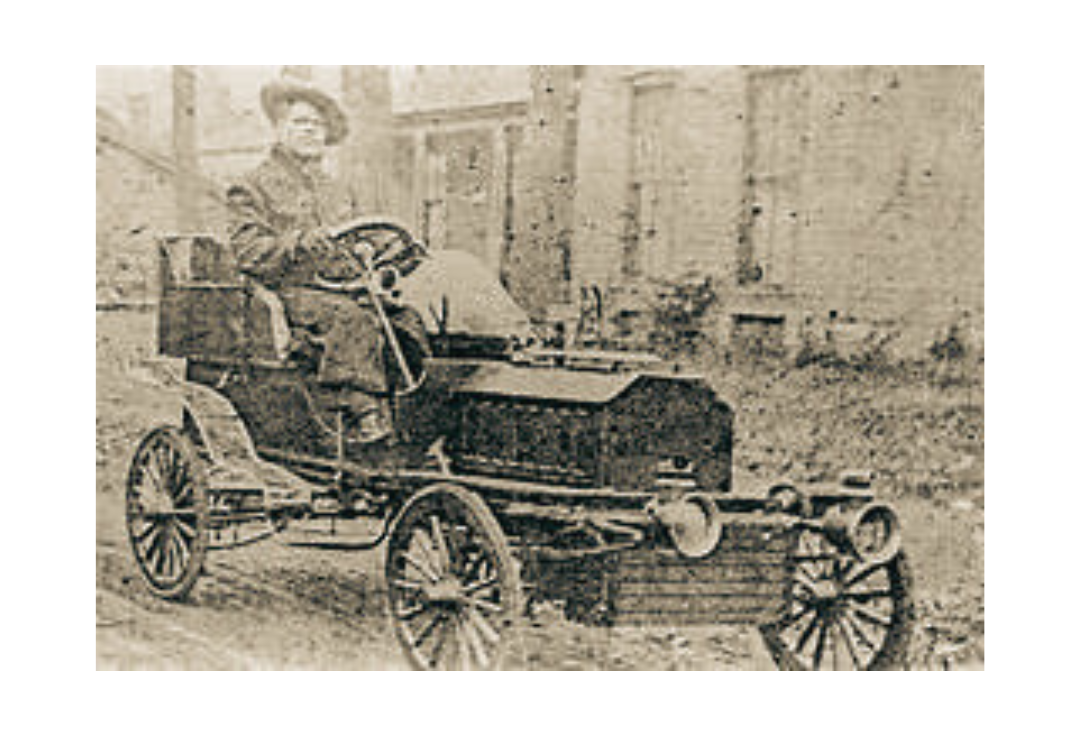Written by: Joan Hampton-Porter, Curator
The History Museum on the Square
Walter Majors, a Spanish American War veteran, built the first car made in Springfield in 1901. When he drove it around the Public Square, he was given a fine of $1.00 for going too fast. At that time Springfield did not even have motor vehicle laws. Periodically, he would be ticketed for speeding despite the fact that, or maybe because he had one of the few cars in Springfield. In 1905, the city’s first automobile driving regulations were issued. The speed limit was six miles per hour limit, at that time the state speed limit was nine miles per hour. Drivers were also required to stop if they were driving toward a horse that became agitated. In 1907, he was issued a ticket for exceeding the six-mph limit. Majors was the first Black person in Springfield to drive a car. Locals nicknamed the car “Walter Majors’ Machine” or “Majors’ Machine”. The initial four-wheel car was largely uncontrollable, but about a month later he was acclaimed in the newspaper for a completely successful one with three wheels, one in front and two in back.
Majors was born in Springfield in 1879, the son of Peyton and Emma Majors, both former slaves. Majors owned an automobile garage on Jefferson Street from approximately 1906 to 1908. Previously, he had worked for Springfield Wagon Company and operated a bicycle shop. Majors and his wife, Myrtle, moved to the St. Louis area. Many Black families left Springfield in the years following the lynching of three innocent men, Will Allen, Fred Coker, and Horace Duncan, on the Springfield Public Square in 1906, but it is unknown if that is why the Majors family left. He opened a garage in St. Louis in 1910 and offered chauffeur services, as well as ran a correspondence chauffeur’s course.
In 1913, he went into business with Annie Malone. While this arrangement was short-term, it changed his career path for the rest of his life. Malone was a pioneer in developing safer hair care products for Black hair under her brand, Poro. Majors filed suit for wrongful discharge. They were in litigation for twenty years before the decision was awarded to Majors. In 1916, Majors opened Majors Oxford College of Hair Culture which utilized seventeen proprietary, safer products.
Majors was an inventor and held at least thirteen patents, which tend to split into his two areas of interest: automobiles and hair care, with a few anomalies. He patented a hair dryer, a heater for a car heater, two-coin operated taxi meters, an anti-skid device, a machine to treat scalp and hair, a carburetor auxiliary, and other inventions.
When he died at age 70 in 1949, his profession was listed as “retired inventor.”






